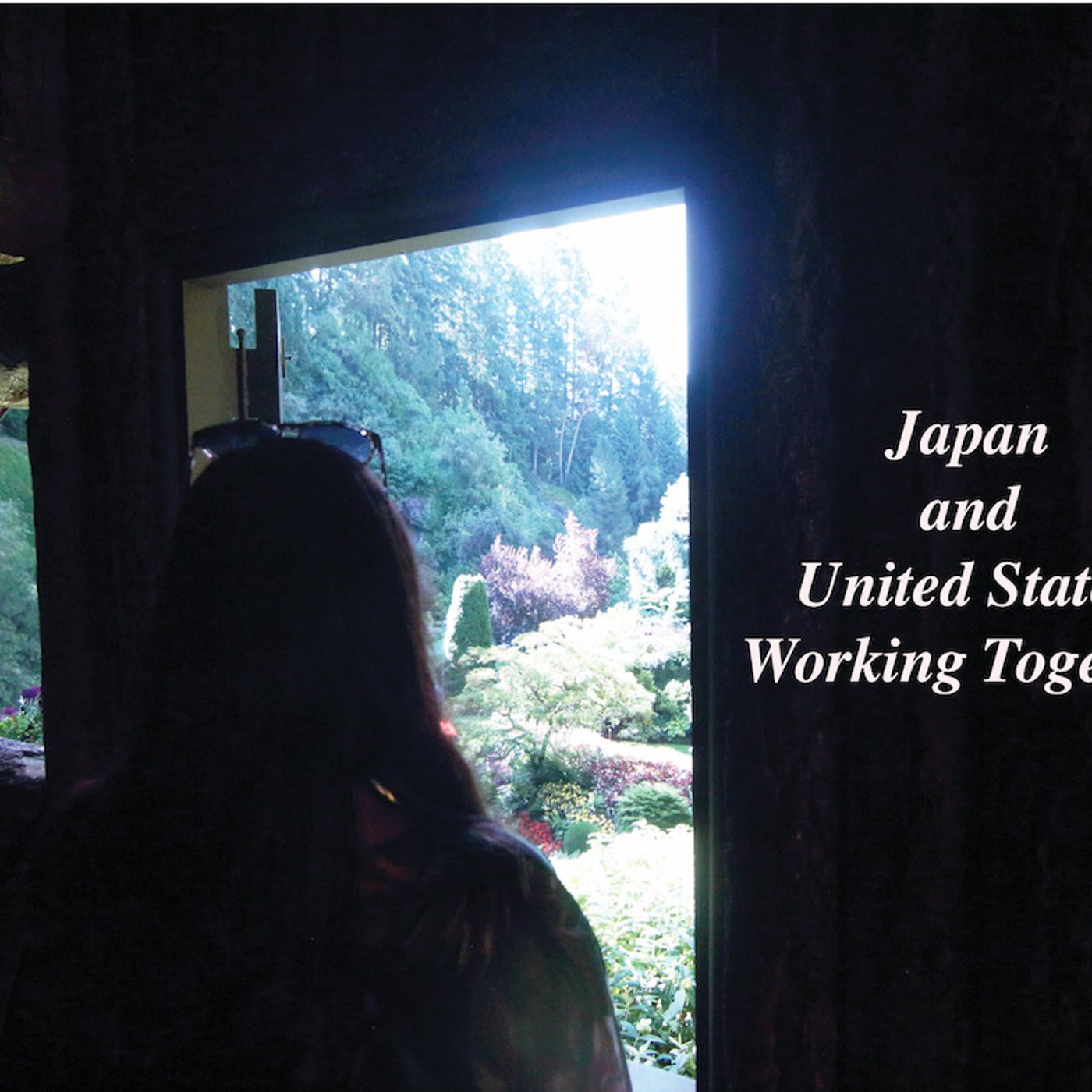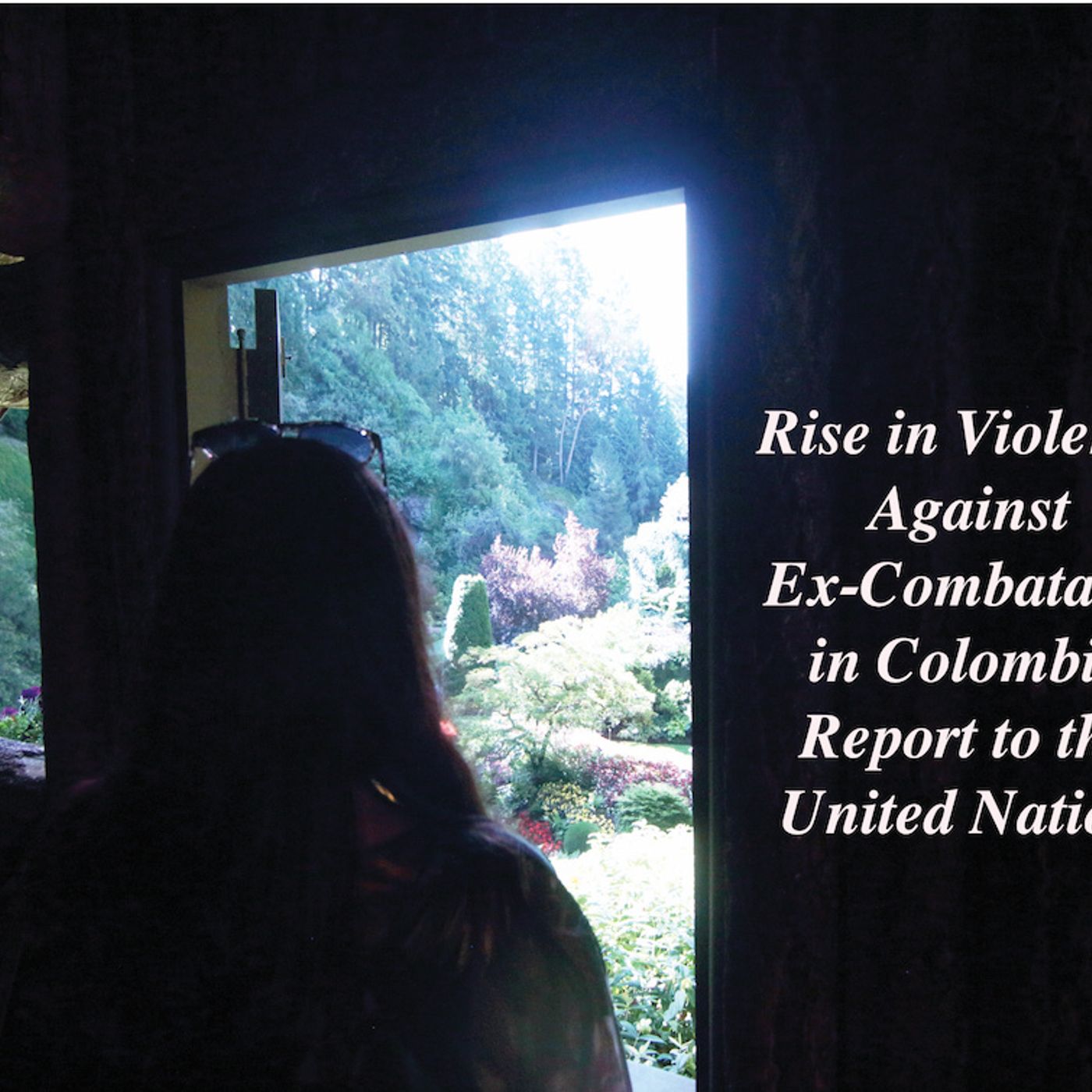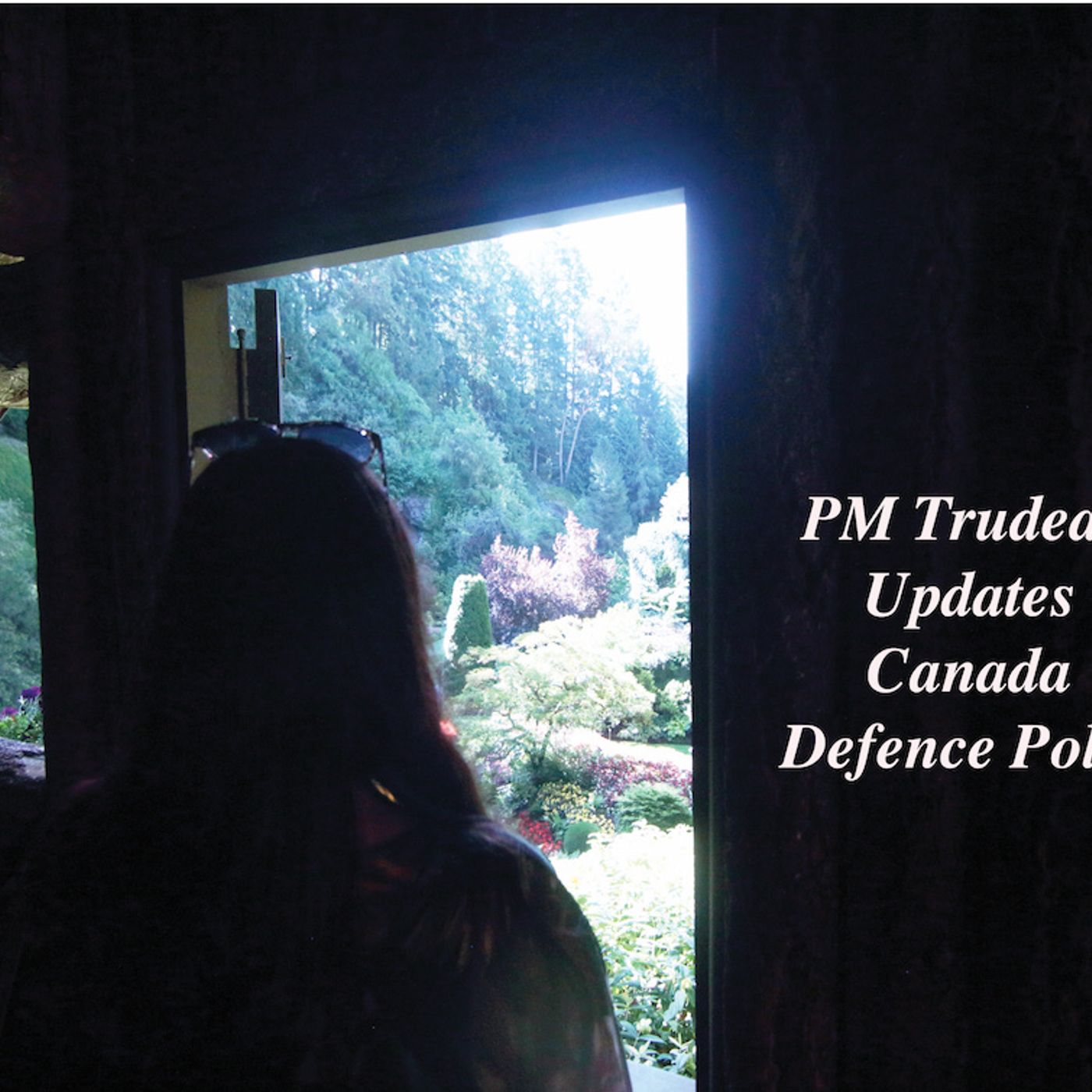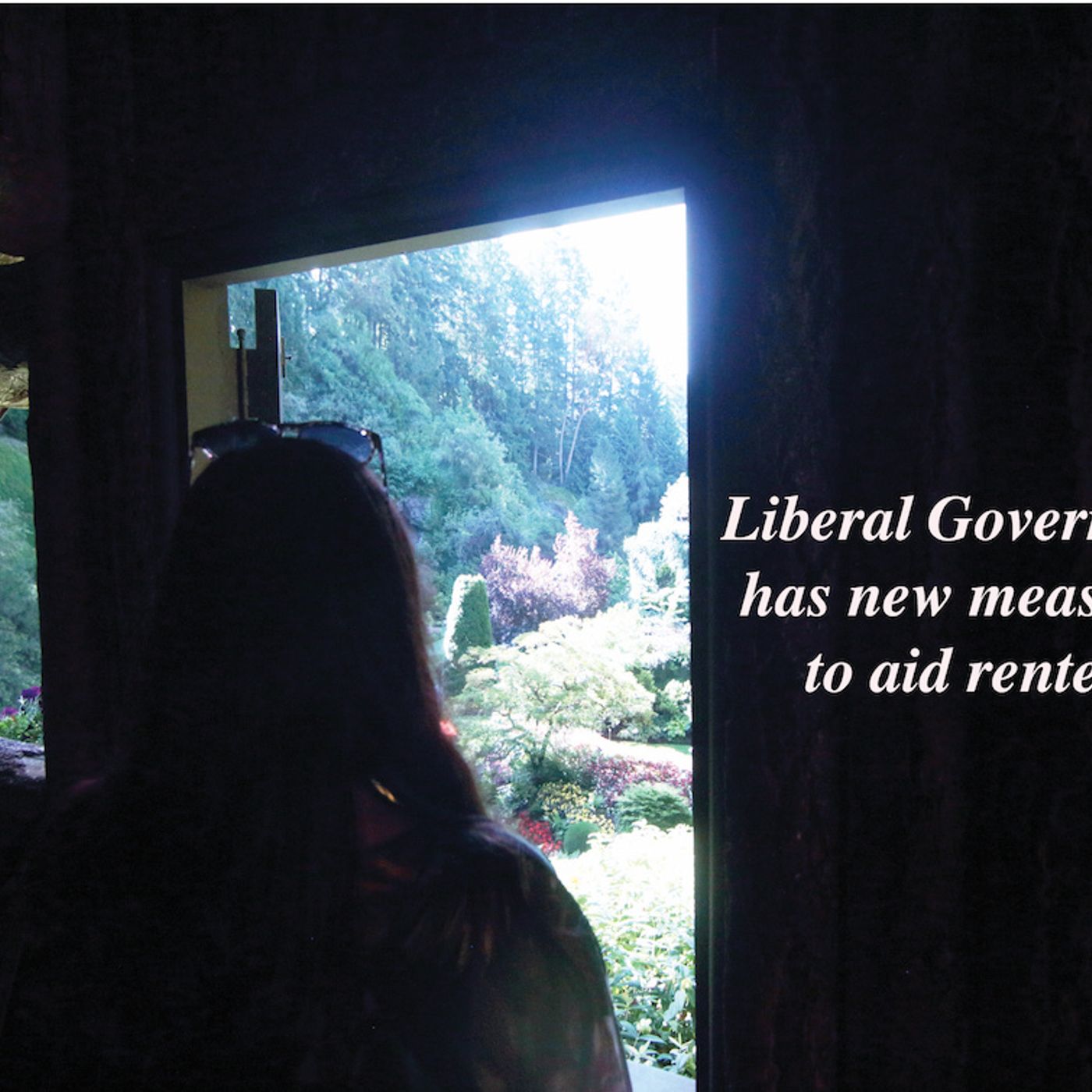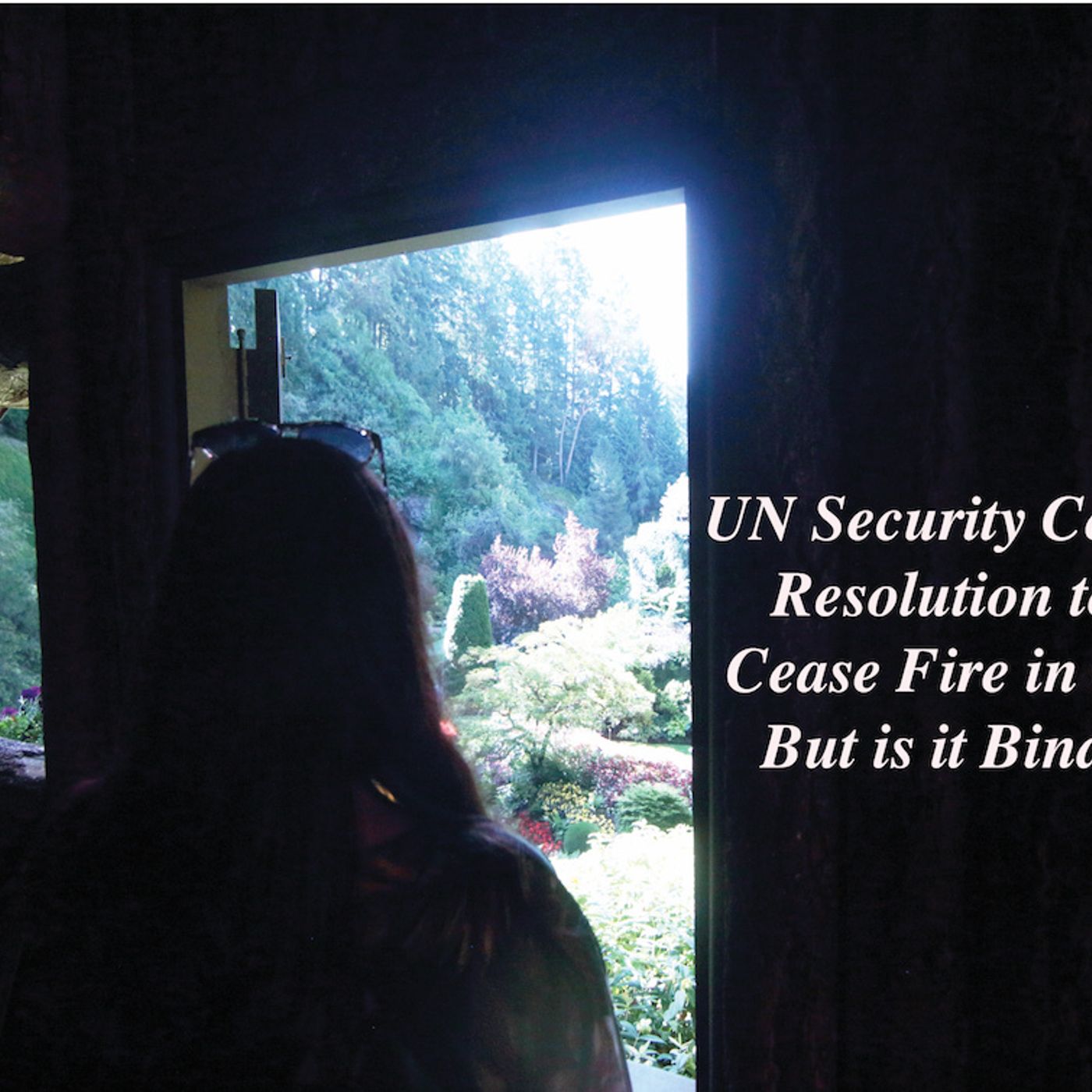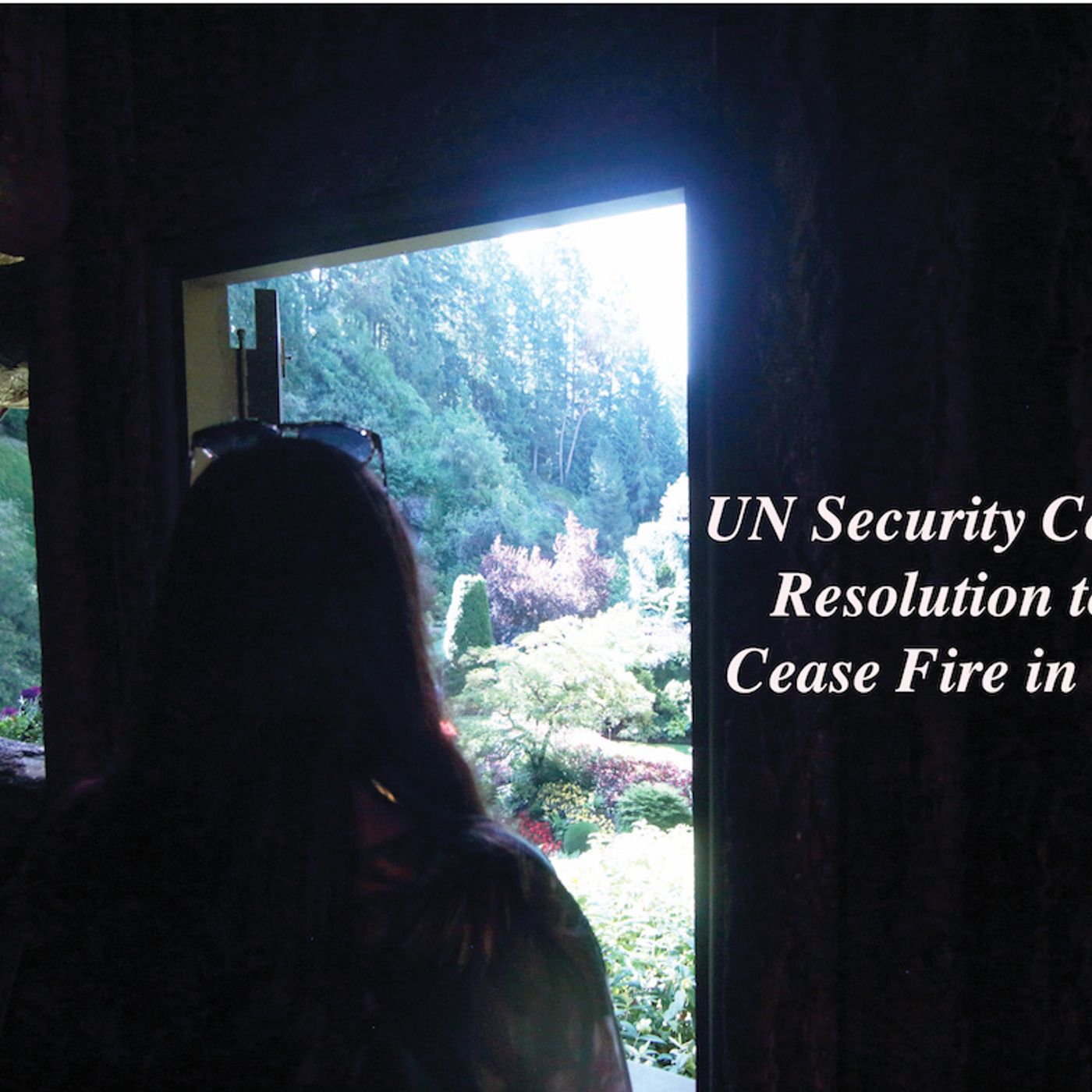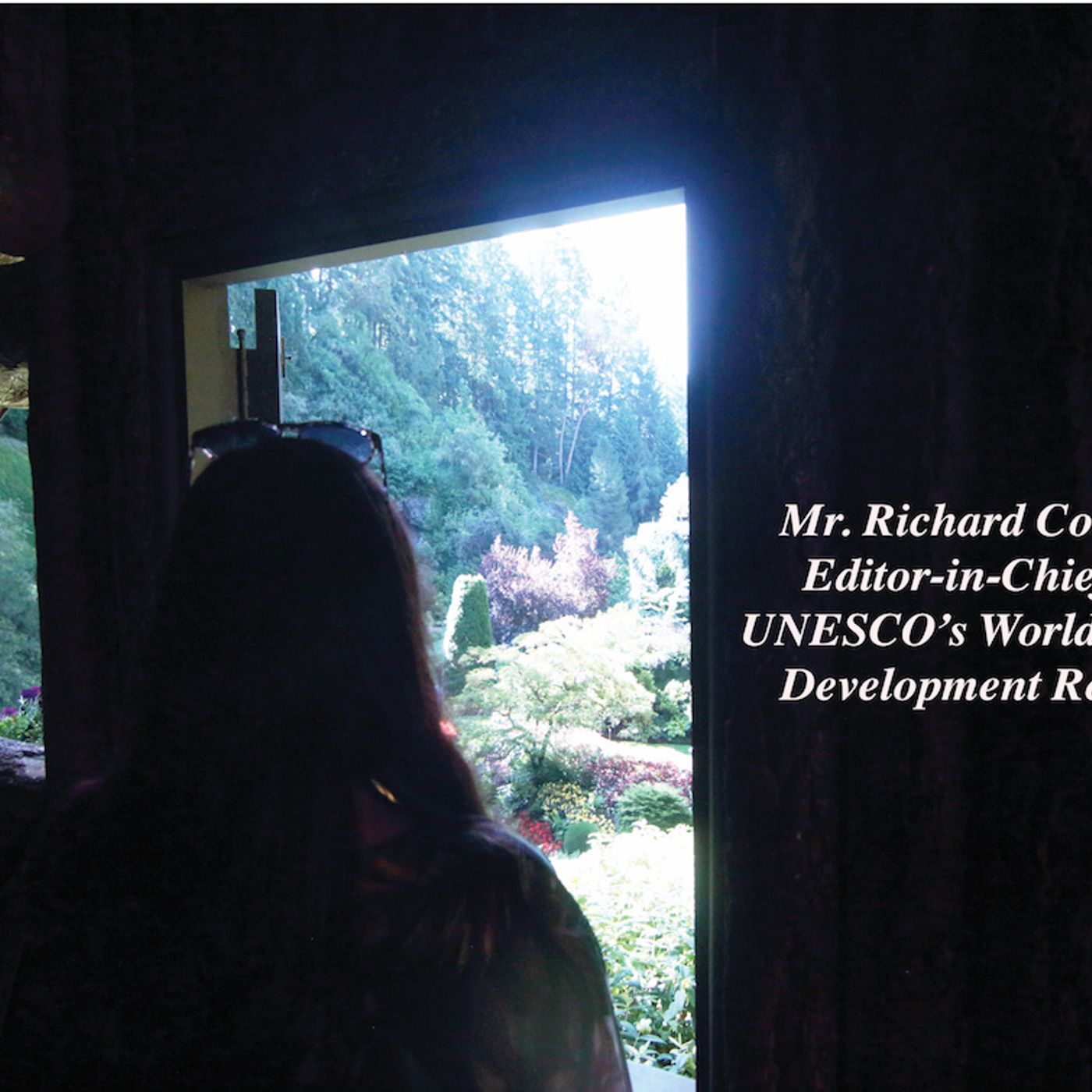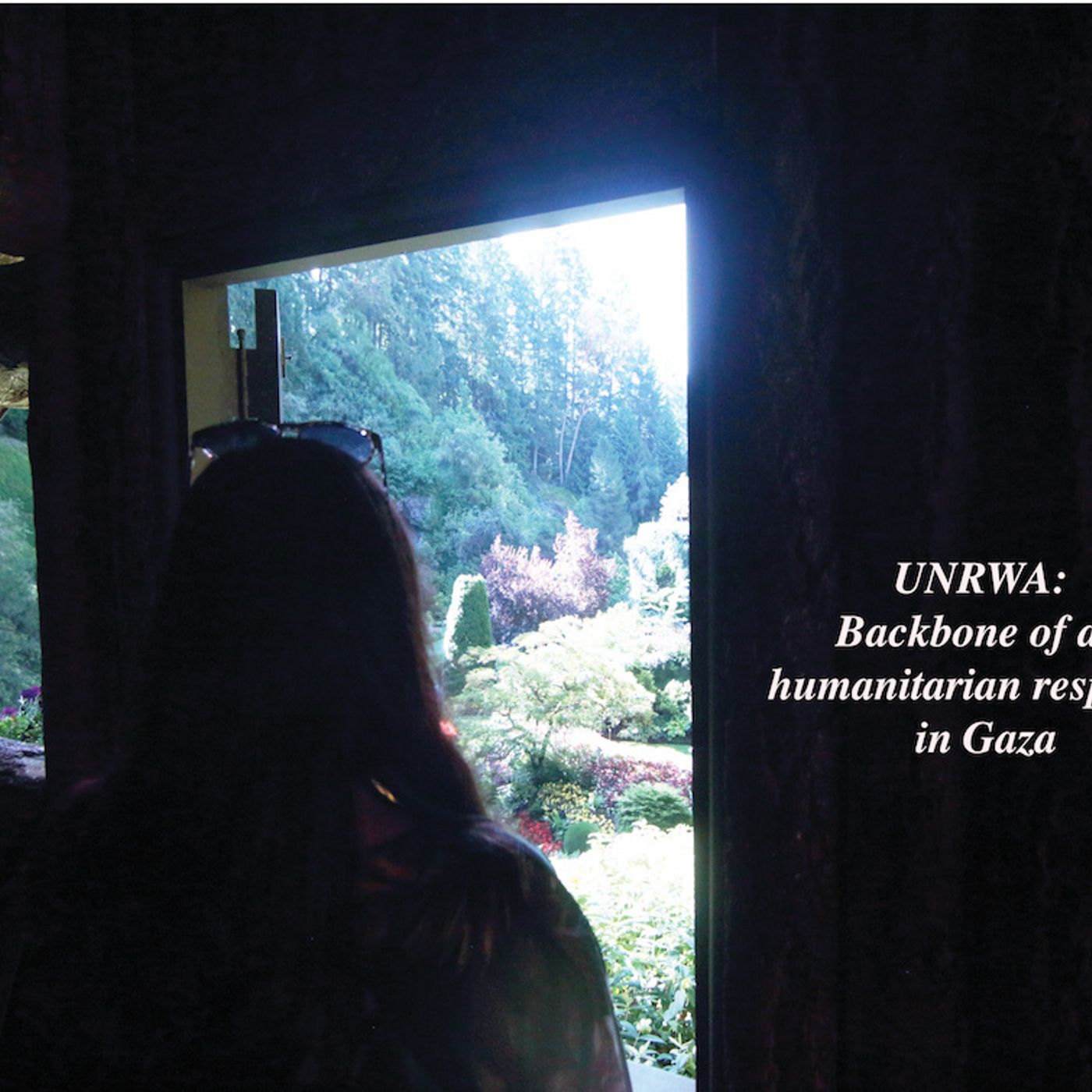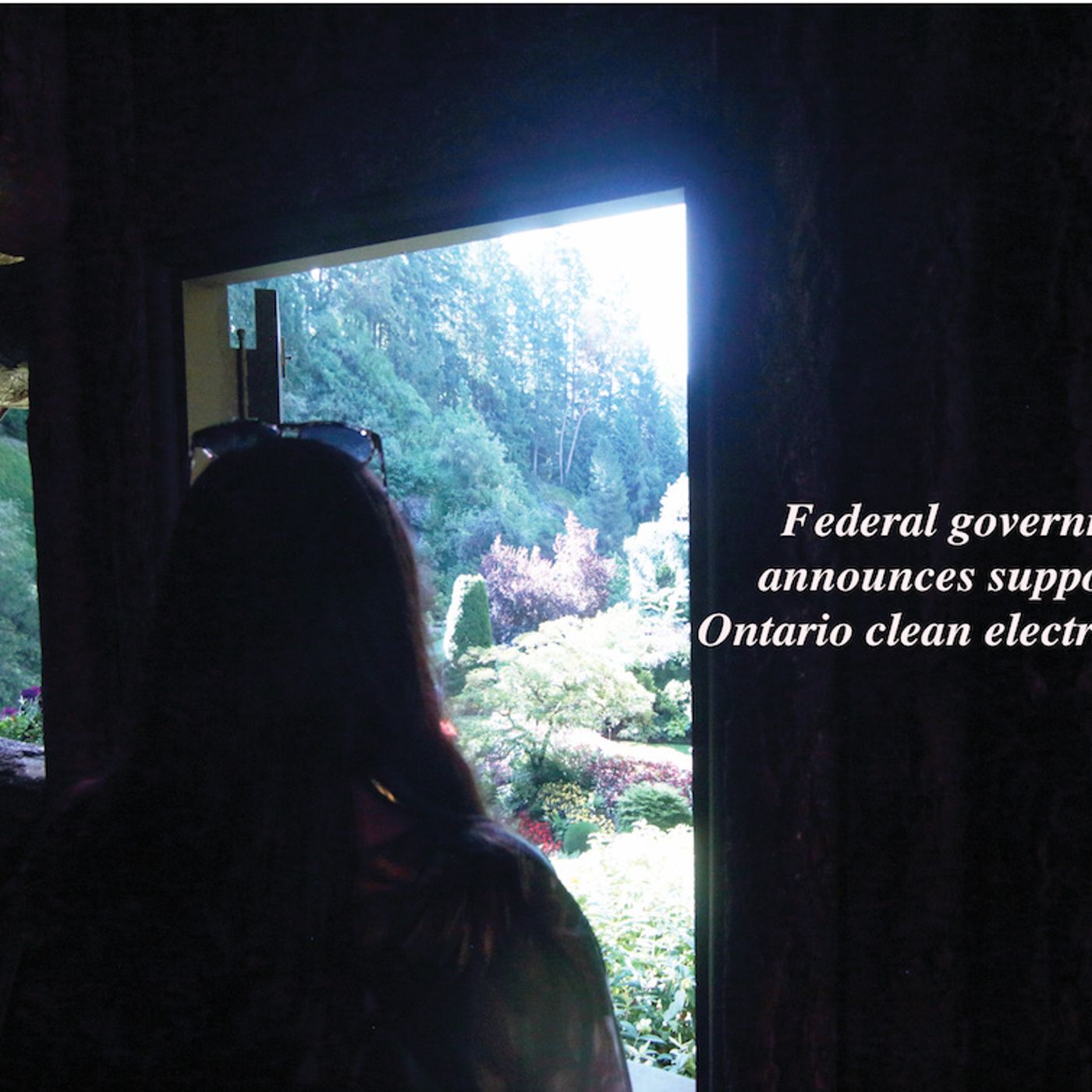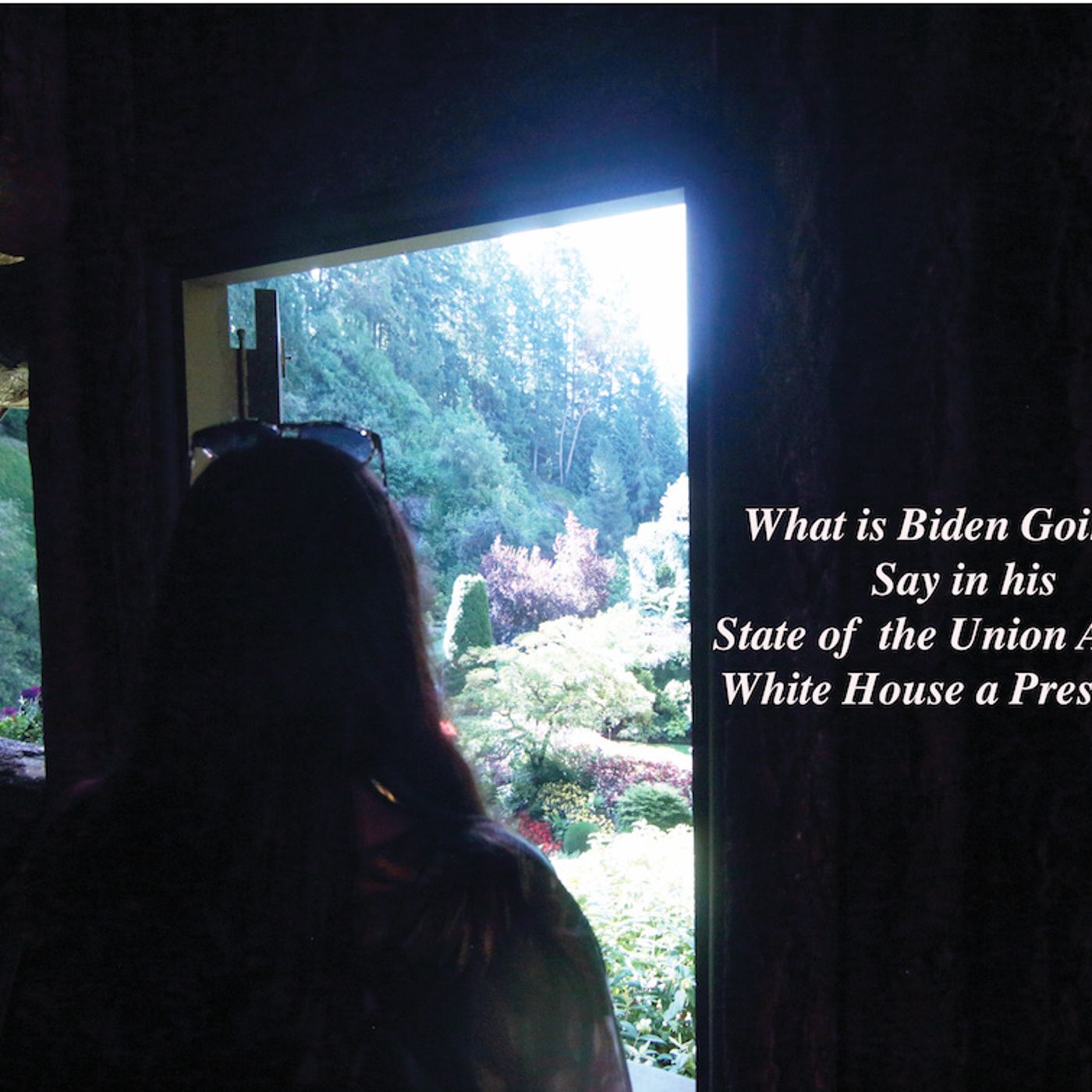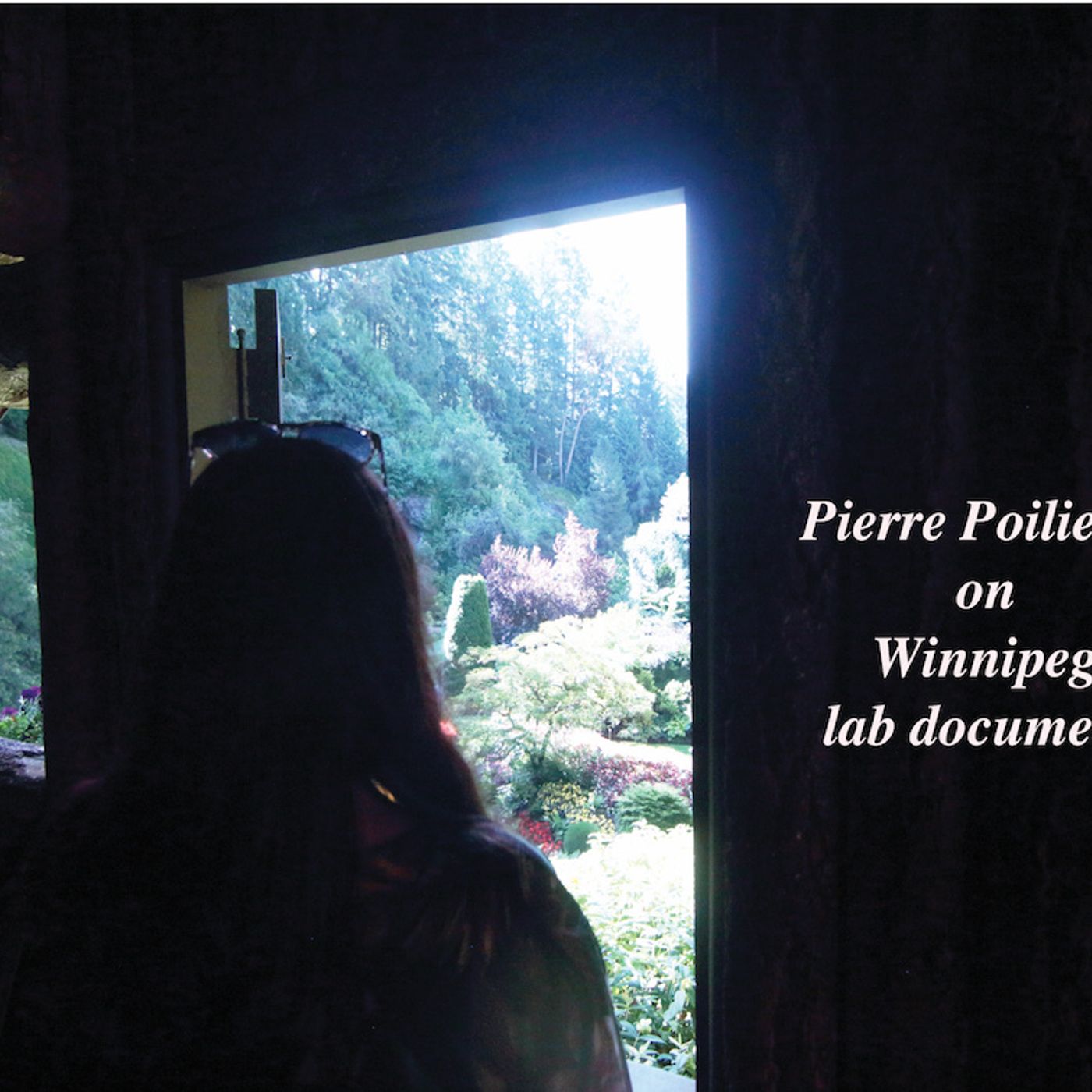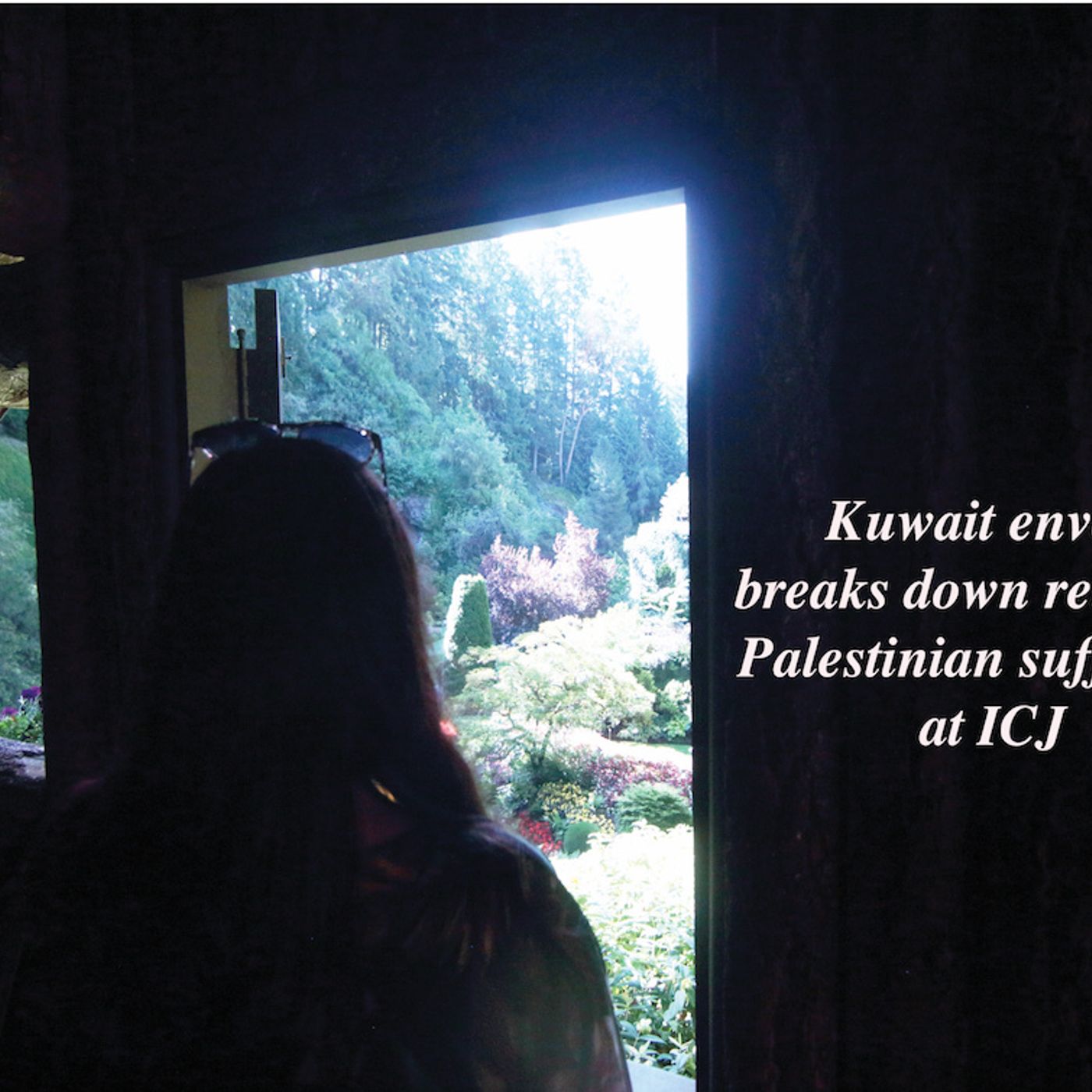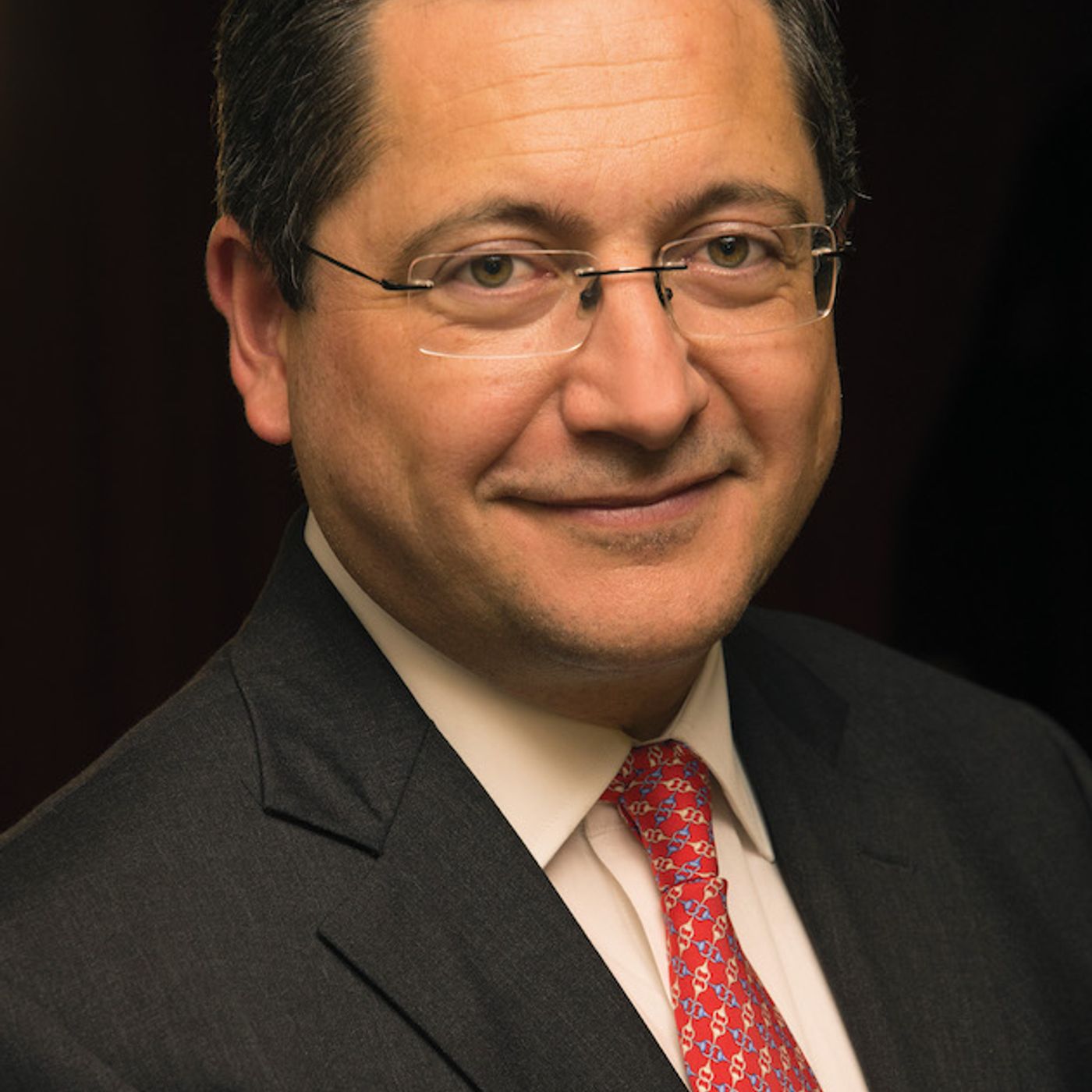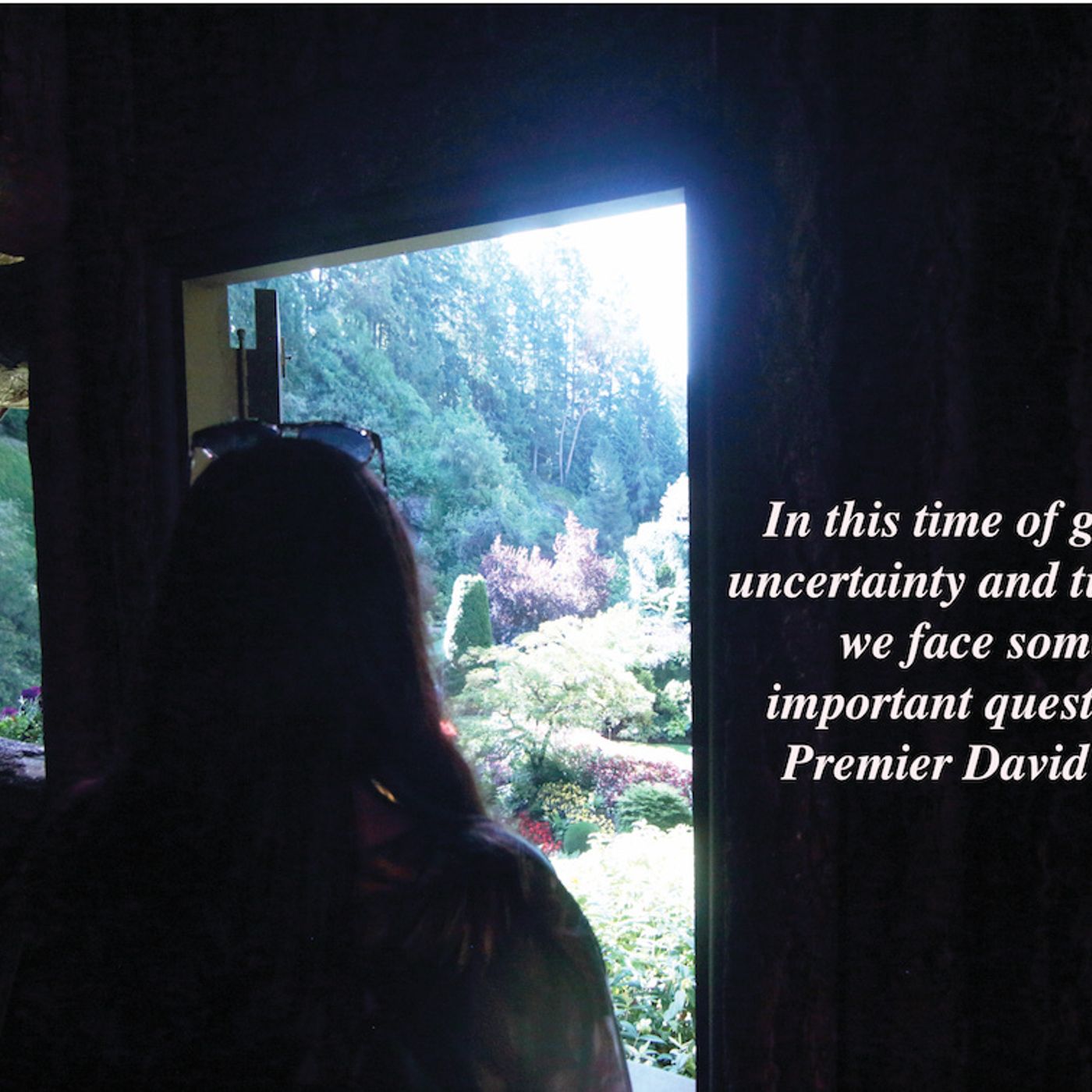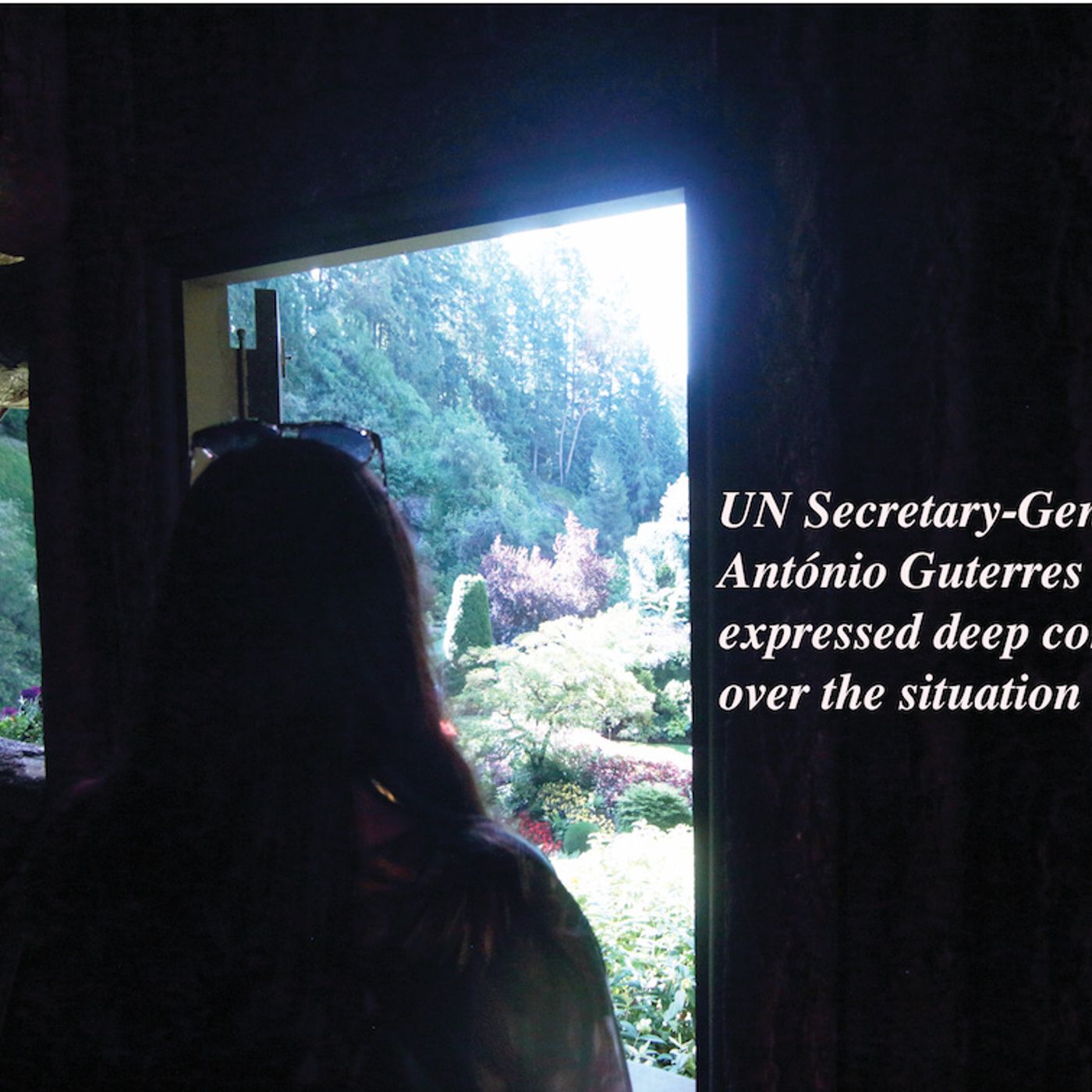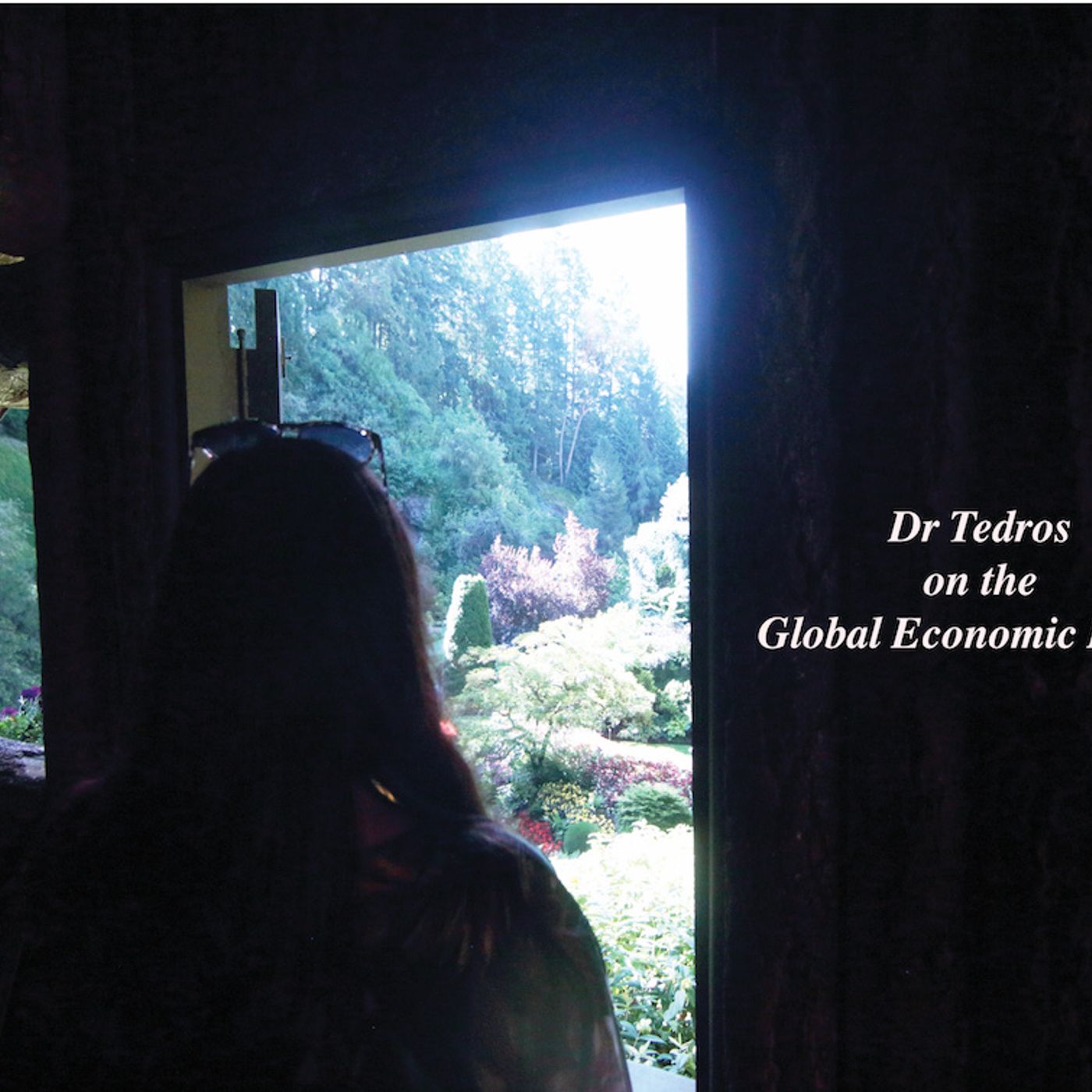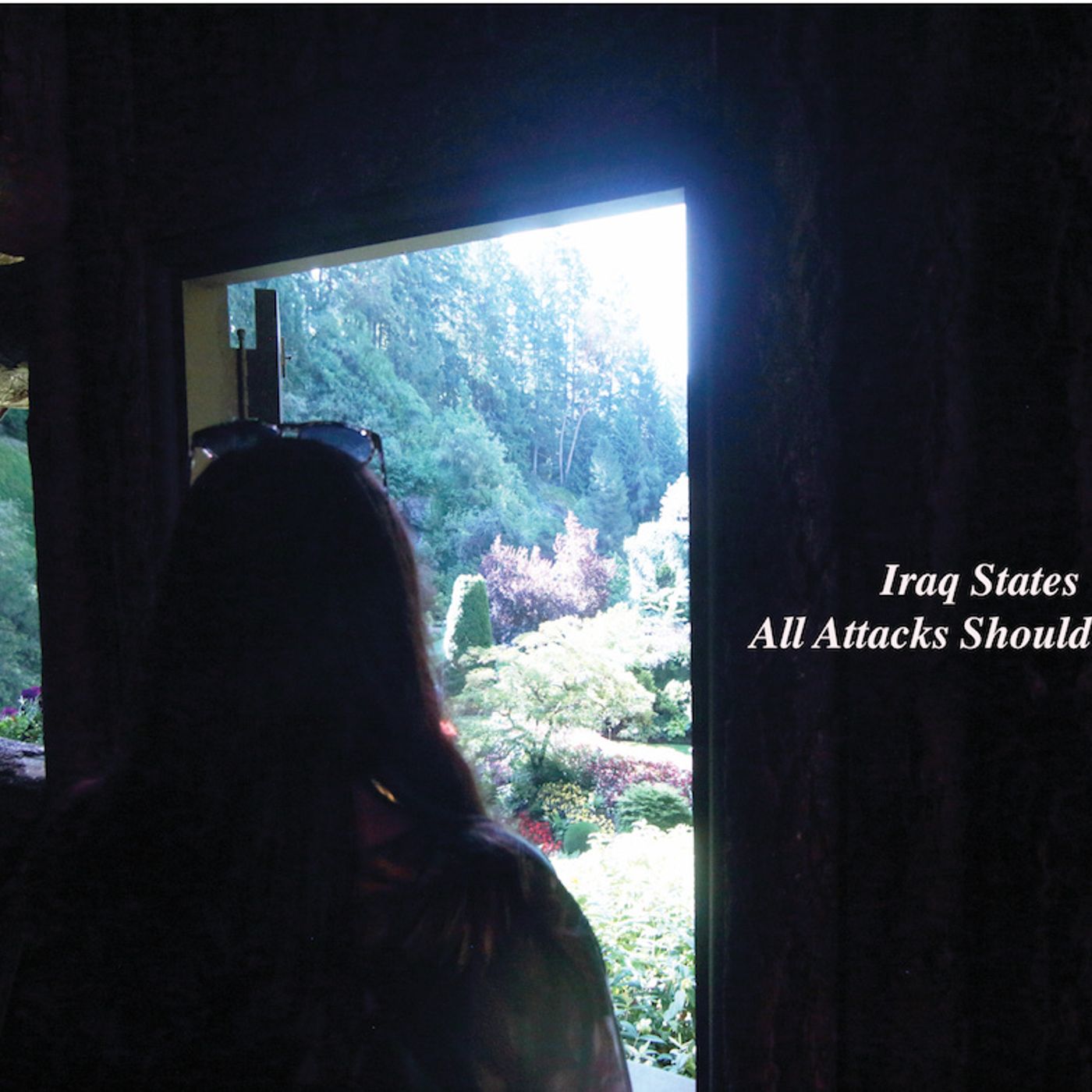Discover Policy and Rights
Policy and Rights

Policy and Rights
Author: Michael Clogs
Subscribed: 1Played: 12Subscribe
Share
© Depictions Media
Description
This a series of conversations around government policy and our rights. We are trying to report information to listeners about what is happening with government and communities
Become a supporter of this podcast: https://www.spreaker.com/podcast/policy-and-rights--3339563/support.
Become a supporter of this podcast: https://www.spreaker.com/podcast/policy-and-rights--3339563/support.
605 Episodes
Reverse
Minister of Japan, President Kishi- -- Prime Minister Kishida. When I became president, I said that the United Stateswould rebuild the muscle of our demo- -- democratic alliances and we’d stand shoulder to shoulder with our allies again,because our alliances are America’s greatest asset. The relationship with Japan is powerful proof of that --that in investing in our alliance and raising our collective ambitions, we yield remarkable results.Over the last three years, the partnership between Japan and the United States has been transformed into a truly global partnership.Become a supporter of this podcast: https://www.spreaker.com/podcast/policy-and-rights--3339563/support.
The Special Representative of the Secretary-General for Colombia and head of our political mission there, Carlos Ruiz Massieu, today (9 Apr) told the Security Council that “regrettably,” eleven more ex combatants have been killed since the last report of the Secretary-General on Colombia was issued.Ruiz Massieu said, “social leaders, as well as entire communities, particularly Indigenous and Afro Colombians, still suffer the full impact of persisting violence and the limited presence of State institutions in various regions.”Regarding dialogue between the Government and the FARC-EP dissident group Estado Mayor Central (EMC), the Special Representative said it was “essential to build on the progress made so far and to give clear evidence of their will for peace.”“Any hostility against the civilian population,” he said, “sends the opposite message” and “erodes trust between parties and society, as was evidenced by the condemnable acts of violence against the indigenous population in Cauca, which led to the partial suspension of the ceasefire by the National Government.”Ruiz Massieu told Council Members that Colombia has reached an important juncture in relation to its ambitions to implement the 2016 Final Peace Agreement, as key challenges remain to translate political will into results on the ground.Become a supporter of this podcast: https://www.spreaker.com/podcast/policy-and-rights--3339563/support.
Prime Minister Justin Trudeau visits Canadian Forces Base Trenton in Ontario to release Canada’s updated defence policy. He is joined by Deputy Prime Minister Chrystia Freeland, Defence Minister Bill Blair, and associate Defence Minister Ginette Petitpas Taylor.Provisions in the upcoming federal budget will include an investment of $73 billion over 20 years. The new defence policy is expected to boost Canada's military spending to 1.76 per cent of GDP by 2029-30. That figure is still below the NATO target of two per cent of GDP. The Liberal government released its last defence policy in 2017.Become a supporter of this podcast: https://www.spreaker.com/podcast/policy-and-rights--3339563/support.
When does inclusion lead to exclusionBecome a supporter of this podcast: https://www.spreaker.com/podcast/policy-and-rights--3339563/support.
Prime Minister Justin Trudeau announces measures aimed at protecting renters that will be in the upcoming federal budget, including a renters’ bill of rights and legal aid fund to protect tenants. He is joined in Vancouver by Finance Minister Chrystia Freeland and Emergency Preparedness Minister Harjit Sajjan, who is also the MP for Vancouver South. The prime minister faces questions about the concerns of several premiers about the planned carbon price hike on April 1. He is also asked about Canada being targeted by the same hacking group that attacked the United States and the United Kingdom.Become a supporter of this podcast: https://www.spreaker.com/podcast/policy-and-rights--3339563/support.
The UN Security Council on Monday adopted a resolution demanding an immediate ceasefire in war-ravaged Gaza during Ramadan and calling for the immediate and unconditional release of all hostages. This was the Council’s first explicit call for an immediate ceasefire since IsraelBecome a supporter of this podcast: https://www.spreaker.com/podcast/policy-and-rights--3339563/support.
The UN Security Council on Monday adopted a resolution demanding an immediate ceasefire in war-ravaged Gaza during Ramadan and calling for the immediate and unconditional release of all hostages. This was the Council’s first explicit call for an immediate ceasefire since IsraelBecome a supporter of this podcast: https://www.spreaker.com/podcast/policy-and-rights--3339563/support.
Ulrika Richardson, Resident and Humanitarian Coordinator for Haiti, will brief virtually on the current situation in the countryBecome a supporter of this podcast: https://www.spreaker.com/podcast/policy-and-rights--3339563/support.
In Mississauga, Ontario, federal Energy Minister Jonathan Wilkinson announces $16.7 million in funding for the Independent Electricity Systems Operator (IESO), the province's power grid operator, to support an initiative that will improve its electricity grid operations. He is joined by his provincial counterpart Todd Smith and Lesley Gallinger, president of the IESOOn the first day of the Muslim holy month of Ramadan, Secretary-General António Guterres today called for “an immediate humanitarian ceasefire and the immediate release of all hostages” in Gaza, as well as a cessation of hostilities in Sudan.President Biden at the National League of Cities Congressional City Conference We know what you all do and what a measure of success isn’t how many partisan points you score. It’s a basic thing we’ve all got involved in the first place for: Can you fix the problem? Can we fix the problem? Can we be responsive?We’re here for one reason: to deliver to families and communities for the country. We’ve been a — you’ve been essential partners in delivering historic results for the American people.Become a supporter of this podcast: https://www.spreaker.com/podcast/policy-and-rights--3339563/support.
President Biden Takes New Steps to Lower Prescription Drug and Health Care Costs, Expand Access to Health Care, and Protect ConsumersBecome a supporter of this podcast: https://www.spreaker.com/podcast/policy-and-rights--3339563/support.
Conservative Leader Pierre Poilievre speaks with reporters on Parliament Hill about the government’s recent release of documents concerning the 2021 firing of two scientists from the National Microbiology Laboratory in Winnipeg. He is joined by Conservative MPs Michael Chong, Stephen Ellis, James Bezan, and Michael Cooper. The Conservative leader faces questions about the right of provinces who want to opt out of a national pharmacare plan with full compensation and no conditions. He is asked as well about the federal government's decision to re-impose visa requirements for Mexican nationals visiting Canada in an effort to address the rising number of asylum seekers. (February 29, 2024)Joe Biden remarks on update the US immgration system especial at the Mexican BorderSpeaking with reporters on Parliament Hill in Ottawa, Daniel Blaikie, the NDP MP for Elmwood–Transcona, Man., discusses his decision to leave federal politics. Blaikie, who was first elected to the House of Commons in 2015, will step down as a member of Parliament effective March 31, 2024, and become an adviser to Manitoba Premier Wab Kinew.Become a supporter of this podcast: https://www.spreaker.com/podcast/policy-and-rights--3339563/support.
On Parliament Hill in Ottawa, Finance Minister Chrystia Freeland provides her weekly economic update alongside other federal ministers. Industry Minister François-Philippe Champagne announces the government is freezing the threshold at which the Competition Bureau must be notified of a potential business merger. Housing Minister Sean Fraser announces a $123-million investment that he says will help eight homebuilders drive innovation and build more than 5,000 affordable homesBecome a supporter of this podcast: https://www.spreaker.com/podcast/policy-and-rights--3339563/support.
Kuwait envoy breaks down relaying Palestinian suffering at ICJKuwait’s envoy to the Netherlands, Ali Al-Thefeeri, broke down during his speech at the International Court of Justice. Al-Thefeeri was forced to stop his address several times as he questioned why Israel is allowed to commit crimes against Palestinians without being held to account. “Why does the victim continue to be portrayed as the killer?” he asked. More than 50 states are presenting arguments during six-days of hearings at the World Court on the legality of Israel's occupation of the West Bank and East Jerusalem Become a supporter of this podcast: https://www.spreaker.com/podcast/policy-and-rights--3339563/support.
Marcos Buscaglia is an economist, former Wall Street analyst and Emerging Markets expert. He has more than 30 years doing research on the economies of Emerging Market countries and advising Wall Street companies. He is also emerging as a leading voice on the topic of markets and democracy. He was a speaker at the 2022 and the 2023 Oslo Freedom Forum on the impact of foreign investment on democracy and human rights.He is the founder of Alberdi Partners, a consultancy firm dedicated to political, economic and market analysis of Latin American countries. Buscaglia holds a PhD in Economics from the University of Pennsylvania, where he was a Fulbright scholar, has a graduate degree in economics from Universidad Torcuato Di Tella and a degree in economics (summa cum laude) from the Catholic University of Argentina (UCA).Buscaglia was for five years chief Latin America economist at Bank of America Merrill Lynch in New York. He ranked #1 in the Institutional Investor rankings in the categories Latin America economics and Argentina in 2015. He also served as chief economist for Latin America at Citibank in New York, and as chief economist for the Southern Cone countries at Citibank, based in Buenos Aires.Previously he was the Dean of Graduate Business Programs at the University of San Andrés, and a professor of Finance and Economics at IAE Business School, Universidad Austral. Before his PhD, he worked for four years at Ricardo Arriazu & Asociados in Buenos Aires.Buscaglia is regularly featured in international media, including Bloomberg, Reuters and the Financial Times. He is the author of the books “Por qué fracasan todos los gobiernos?” (with Sergio Berensztein, 2018), “Emergiendo” (2020) and of “Beyond the ESG Portfolio. How Wall Street Can Help Democracies Survive” (2024). He has a bi-weekly column in newspaper La Nación (Argentina). Buscaglia is married and has four children.https://marcosbuscaglia.com/booksBecome a supporter of this podcast: https://www.spreaker.com/podcast/policy-and-rights--3339563/support.
Lieutenant Governor Janet Austin opened the final session of the 42nd Parliament by delivering the speech from the throne, laying out the B.C. government’s vision for a stronger province that works better for people.“While our government is proud of the progress we’ve made for people through tough times, we’re nowhere near satisfied,” said Premier Eby. “Our economy is strong, with low unemployment and the highest wages in the country. But too many are still struggling to get ahead – even those in the middle class who earn a decent paycheque. That’s why we’ll continue bringing people together to solve big challenges and help everyone build a good life here.”Her Honour and members of the legislature were greeted by the Lekwungen singers and dancers of the Songhees Nation – a powerful symbol of B.C.’s commitment to reconciliation and moving forward in partnership with Indigenous Peoples.The speech outlined actions government will take over the next few months to deliver more middle-class homes faster, help working families and small businesses with costs, strengthen public health care and services, and build a cleaner economy that works for everyone—not just those at the top. It also committed to expanding actions to protect children from harms at schools, in their communities and online.Become a supporter of this podcast: https://www.spreaker.com/podcast/policy-and-rights--3339563/support.
Ontario Premier Doug Ford says that his government will soon table legislation requiring future provincial governments to hold a referendum before introducing any new carbon pricing plans. He is joined at the news conference in Mississauga by Finance Minister Peter Bethlenfalvy. The government will also introduce automatic license plate renewal for drivers in Ontario. Premier Ford also answers questions regarding the rise in opioid-related deaths in Ontario, and funding for universities and colleges.Become a supporter of this podcast: https://www.spreaker.com/podcast/policy-and-rights--3339563/support.
UN Secretary-General António Guterres on Thursday expressed deep concerns over the situation in Gaza, reiterating his call for an immediate ceasefire and the unconditional release of all hostages.Speaking at a press conference at UN Headquarters in New York, the UN chief underscored the need for “real, visible, concrete steps” towards a two-State solution based on UN resolutions, international law and previous agreements.“Repeated bloody hostilities and decades of tensions and occupation have failed to provide a State for the Palestinians or security for Israelis,” he said.“In the Middle East and around the world, we need peace in every sense," he said. "Our world cannot afford to wait."Peace, the common threadRecalling his address to the General Assembly yesterday, where he presented his priorities for 2024, the UN chief highlighted raging conflicts, geopolitical divisions and escalating polarization within communities and stressed that peace is the “common thread” connecting the multifaceted challenges faced globally.“Yesterday, I presented a clear-eyed, sober assessment of the world. This is no time for pulling punches,” he said.Addressing the several “existential challenges” facing the world – from nuclear danger to the climate emergency and the risks posed by unchecked artificial intelligence – requires much more to be done across the board.“It will require a serious conversation between developed and developing countries, between rich and emerging economies, between north and south, east and west,” he stated.Reforms neededThe Secretary-General called for institutional reforms, starting with the overhaul of the Security Council and the Bretton Woods Institutions – the World Bank and the International Monetary Fund (IMF).Acknowledging the shift from a unipolar to a multipolar world, he emphasized the need for renewed, inclusive mechanisms of multilateral governance to prevent multiplying risks.Looking ahead, Mr. Guterres highlighted the upcoming Summit of the Future in September, noting the importance of the New Agenda for Peace, the SDG Stimulus and the UN's Advisory Body on Artificial Intelligence.He also emphasized the need of aligning institutions with the present times and preserving principles such as respect for the UN Charter, international law and international humanitarian law.Situation in GazaIn addressing immediate crises, Mr. Guterres expressed particular concern for ongoing conflicts in Ukraine and in Gaza, where “the situation just keeps getting worse” and UN humanitarian operations continue to face denials of access, delays and dangers – including live fire.“Let’s be clear: Denial of humanitarian access means denial of humanitarian relief for civilians,” he stressed.The Secretary-General also expressed deep concerns over reports that the Israeli military intends to focus next on Rafah.“Half of Gaza’s population is now crammed into Rafah. They have nowhere to go. They have no homes – and they have no hope,” he said, calling for an immediate humanitarian ceasefire, unconditional release of hostages and concrete steps towards a two-State solution in line with UN resolutions and international law.Peace is indispensableMr. Guterres concluded by stressing that peace, in every sense, is indispensable for the Middle East and the world.He emphasized the urgency of action, asserting that the world cannot afford to wait for the necessary changes.Become a supporter of this podcast: https://www.spreaker.com/podcast/policy-and-rights--3339563/support.
Dr Tedros on the Global Economic HealthBecome a supporter of this podcast: https://www.spreaker.com/podcast/policy-and-rights--3339563/support.
Briefing by Jeanine Hennis-Plasschaert, Special Representative of the Secretary-General and Head of the United Nations Assistance Mission for Iraq (UNAMI), on the situation concerning Iraq.Madam President, Distinguished members of the Security Council,With the conflict raging in Gaza, as well as armed action elsewhere, the Middle East is at a critical juncture. The same is true for Iraq.To be clear: Iraq’s Government’s efforts are focused on avoiding a domestic (and regional) spillover. Still, continued attacks have become a harsh reality. These attacks originate from within and outside of the country’s borders. Attacks which, if they were to continue, stand to undo Iraq’s hard-won stability, as well as other achievements made in the past 18 months.As we all know, history can have a long tail. One which can impact the present. This is searingly true for the Middle East. To fully grasp the current regional and domestic dynamics, therefore, we would need to traverse decades - an exercise this briefing does not allow for.That said, it is within this context that various Iraqi armed groups (groups acting outside state control, that is) reference, as a justification for their operations, a doctrine which transcends politics and state borders. Other motivations expressed pertain specifically to Iraq, such as calls for Iraqi skies to be, and I quote, “free”, and for an end to the international military presence in the country.However, for Iraq to further continue on its path of stability and progress, an enabling environment will prove essential. And, such an environment requires restraint from all sides.Yes, indeed, from Iraq’s armed actors. And, as might be expected, restraint from Iraq’s neighbours and other countries is just as crucial.I have said it numerous times in the past and will say it again: messaging by strikes only serves to recklessly heighten tensions, to kill or injure people and to destroy property.A case in point was the attack on 28 January, which killed and injured US service members. This was seen again, with the retaliatory strikes on 2 February, which also resulted in casualties.Rather than shows of force, all efforts should centre on safeguarding Iraq from being drawn in any way into a wider conflict.And it is within this context that many expressed shock over Iran’s missile attack on Erbil a few weeks ago, which killed civilians - including a little girl. Based on accusations the Iraqi Government has strongly refuted, these actions were sorely at odds with the great efforts made on the Iraq-Iran security agreement, which I highlighted in my October briefing.Meanwhile, Turkish military operations in the North also continue. Just because these attacks have become the new “normal” does not mean they do not seriously compound the risk of new arenas of violence being opened.Now - when talking about the incendiary potential of retaliatory strikes, we would like to welcome the recent launch of dialogue through the United States-Iraq Higher Military Commission.This dialogue channel opened at a critical moment. The setting of joint objectives could only be a positive development amid rising tensions.Having said all this today, I am compelled to reiterate our appeal to all sides to exercise maximum restraint. With Iraq cloaked in an already complex tapestry of challenges, it is of greatest importance that all attacks cease.While we are (of course) aware that many authorities and actors seek to limit further escalation, it is clear that the situation remains volatile. Iraq (and, indeed, the wider region) remain on a knife-edge, with the tiniest miscalculation threatening a major conflagration.On a more optimistic note, Madam President, on 18 December 2023, Iraq held local elections for the first time in 10 years. And, in the case of Kirkuk, for the first time since 2005.This electoral process took place in a broadly peaceful and technically sound manner. It marked another milestone in the Government’s efforts to break from past cycles of dysfunction. And we truly hope that the re-establishment of local representative bodies, which have been inactive since 2019, will signify another major step forward.Now, a challenge for future elections will be to rally a higher voter turnout and, importantly, to encourage Iraq’s eligible voters to register.While turnout among registered voters for the 2023 governorate council elections was on par with Iraq’s national parliamentary elections (two years prior) around 60% of registered voters did not cast their ballots...Watch the full Security Council meeting on the situation concerning Iraq: https://webtv.un.org/en/asset/k1o/k1o...Become a supporter of this podcast: https://www.spreaker.com/podcast/policy-and-rights--3339563/support.


